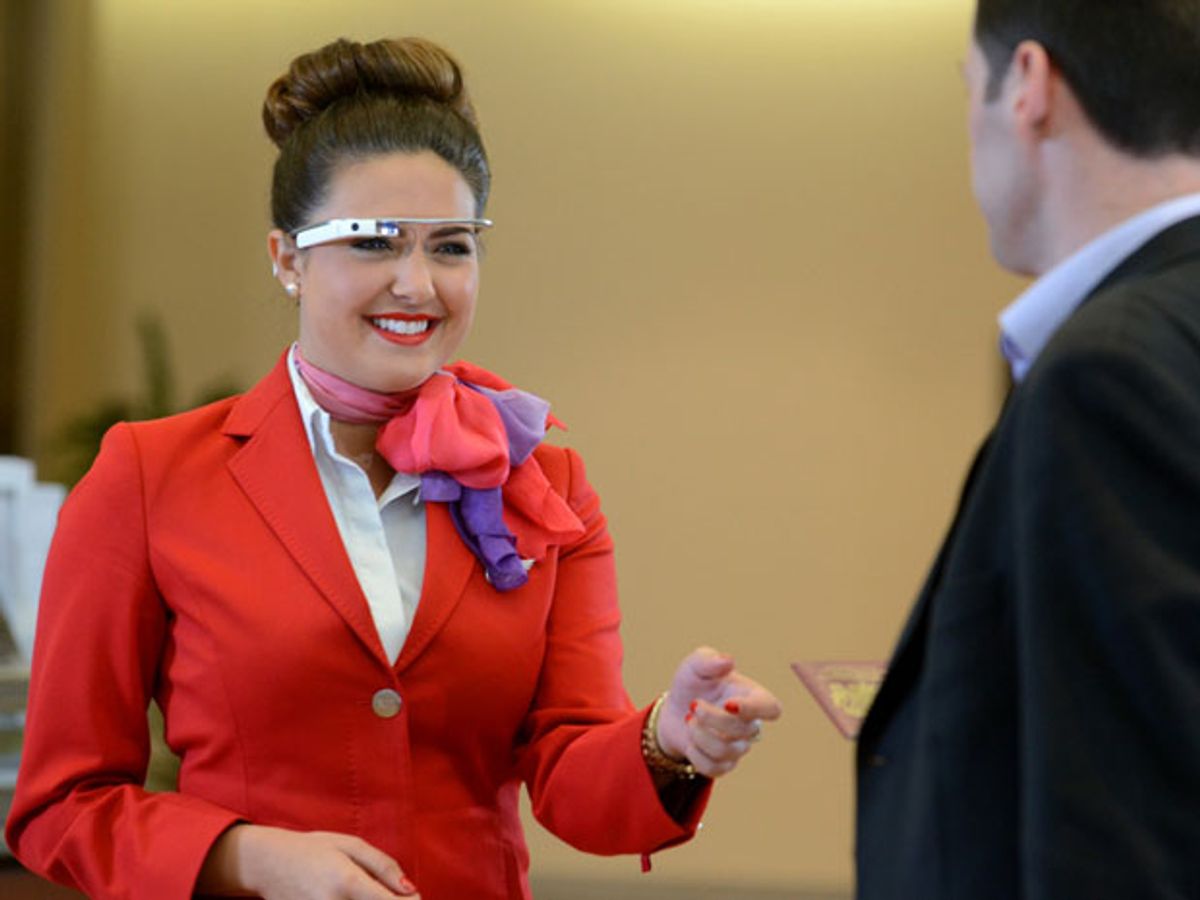British regulators began circling Google's smart glasses like buzzards even before the wearable device went on sale in the UK last week. Google Glass wearers using their device for personal reasons have less to worry about, but commercial users will have to comply with British data protection rules aimed at safeguarding personal privacy.
The Google Glass headset has already caused some controversy in the U.S. because of how it can take pictures and video of people around them—or potentially even snoop on passwords typed into a person's iPad from across a room. That same capability to collect personal data in the hands of commercial users such as Virgin Airlines will now face increased scrutiny under the UK Data Protection Act, according to the New York Times. Specifically, businesses must reveal how much personal data they're collecting from customers through Google Glass and handle such data responsibly as defined by the Data Protection Act.
In a blog post, Andrew Paterson, senior technology officer at the Information Commissioner’s Office, wrote:
This includes making sure that people are being informed about how their details are being collected and used, only collecting information that is relevant, adequate and not excessive and ensuring that any information that needs to be collected is kept securely and deleted once it is no longer required.
Individual consumers who use Google Glass to take family vacation videos or take selfies for Facebook profiles won't be subject to the Act's regulations because of an exemption for "the collection of personal information for domestic purposes," Paterson added. But he warned that using such information to support a local campaign or start a business would fall under the Act's purview. (It goes without saying that the law probably won't smile on anyone using Google Glass to stalk that good-looking neighbor or sneakily steal passcodes from iPad users in a coffee shop.)
The UK is not alone in its concern about how Google Glass might violate individual privacy. A majority of Americans didn't seem to like the idea of a future filled with Google Glass and other devices, according to a Pew Research Center survey about future technologies. A number of bars, restaurants, and movie theaters have already banned the wearable devices. Google even released an etiquette guide for individual wearers that includes instructions on how not to be a "Glasshole".
Both U.S. and UK regulators have also been eying Google Glass and similar smart glasses for reasons other than privacy concerns. A number of U.S. states have passed laws aimed at regulating the use of such smart glasses while driving, given their potential for distracting drivers. The UK's Department of Transportation was already working with local police on preventing the use of Google Glass on the road last year.
Jeremy Hsu has been working as a science and technology journalist in New York City since 2008. He has written on subjects as diverse as supercomputing and wearable electronics for IEEE Spectrum. When he’s not trying to wrap his head around the latest quantum computing news for Spectrum, he also contributes to a variety of publications such as Scientific American, Discover, Popular Science, and others. He is a graduate of New York University’s Science, Health & Environmental Reporting Program.



